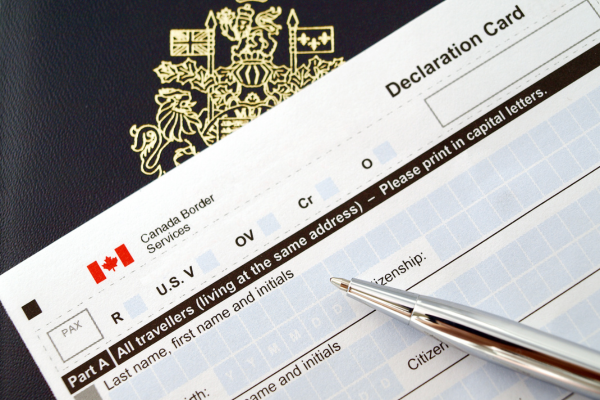Immigration Requirements for Canada: A Comprehensive Guide
Canada is known for its welcoming attitude towards immigrants and its high quality of life. The country offers various immigration pathways for individuals seeking to live and work in Canada. Understanding the immigration requirements is crucial for anyone considering moving to Canada. This article will provide an in-depth overview of the immigration requirements for Canada, including different visa categories, application processes, and frequently asked questions.
Overview of Canadian Immigration
Canada’s immigration system is designed to attract skilled workers, family members of Canadian citizens or permanent residents, and refugees. The immigration process can vary significantly based on the applicant’s circumstances, including their nationality, skills, and the type of visa they are applying for.
Key Immigration Programs
- Express Entry: A points-based system that manages applications for permanent residence under three main programs:
- Federal Skilled Worker Program
- Federal Skilled Trades Program
- Canadian Experience Class
- Provincial Nominee Program (PNP): Allows provinces and territories to nominate individuals for permanent residence based on local labor market needs.
- Family Sponsorship: Enables Canadian citizens and permanent residents to sponsor their family members for immigration to Canada.
- Temporary Foreign Worker Program (TFWP): Allows employers to hire foreign workers to fill labor shortages in Canada.
- International Mobility Program (IMP): Enables employers to hire foreign workers without requiring a Labor Market Impact Assessment (LMIA).
- Refugee and Humanitarian Resettlement: Provides protection to individuals fleeing persecution, war, or violence.
Immigration Requirements for Canada
The requirements for immigrating to Canada can vary widely based on the visa category. Below are the key requirements for some of the most common immigration pathways.
1. Express Entry
The Express Entry system is a popular route for skilled workers seeking permanent residency in Canada. The key requirements include:
- Eligibility Criteria: Applicants must meet the requirements of one of the three programs under Express Entry:
- Federal Skilled Worker Program: Requires at least one year of continuous full-time work experience in a skilled occupation, language proficiency in English or French, and a minimum education level.
- Federal Skilled Trades Program: Requires work experience in a skilled trade, a valid job offer, or a certificate of qualification from a Canadian authority.
- Canadian Experience Class: Requires at least one year of skilled work experience in Canada.
- Comprehensive Ranking System (CRS): Candidates are scored based on factors such as age, education, work experience, and language proficiency. A higher CRS score increases the chances of receiving an Invitation to Apply (ITA) for permanent residency.
- Language Proficiency: Applicants must demonstrate proficiency in English or French through standardized tests such as IELTS, CELPIP, or TEF.
- Educational Credential Assessment (ECA): Applicants must have their foreign educational credentials assessed to ensure they meet Canadian standards.
2. Provincial Nominee Program (PNP)
The PNP allows provinces to nominate individuals for permanent residence based on local labor market needs. Key requirements include:
- Nomination by a Province: Applicants must receive a nomination from a province or territory in Canada.
- Eligibility Criteria: Each province has its own eligibility criteria, which may include specific skills, work experience, and language proficiency.
- Application Process: After receiving a nomination, applicants must apply for permanent residence through Immigration, Refugees and Citizenship Canada (IRCC).
3. Family Sponsorship
Family sponsorship allows Canadian citizens and permanent residents to sponsor their family members for immigration. Key requirements include:
- Eligibility of the Sponsor: Sponsors must be at least 18 years old, a Canadian citizen or permanent resident, and able to provide financial support to their sponsored family members.
- Sponsorship Application: Sponsors must submit a sponsorship application along with the application for permanent residence for their family member.
- Relationship Proof: Sponsors must provide proof of their relationship to the sponsored individual, such as marriage certificates or birth certificates.
4. Temporary Foreign Worker Program (TFWP)
The TFWP allows Canadian employers to hire foreign workers to fill labor shortages. Key requirements include:
- Job Offer: Applicants must have a valid job offer from a Canadian employer.
- Labor Market Impact Assessment (LMIA): In most cases, employers must obtain an LMIA to demonstrate that there are no Canadian citizens or permanent residents available to fill the position.
- Work Permit Application: Applicants must apply for a work permit, providing documentation such as the job offer letter and LMIA.
5. International Mobility Program (IMP)
The IMP allows employers to hire foreign workers without the need for an LMIA. Key requirements include:
- Job Offer: Applicants must have a valid job offer from a Canadian employer.
- Eligibility for LMIA Exemption: Certain categories of workers, such as intra-company transferees and participants in international agreements, may be exempt from the LMIA requirement.
- Work Permit Application: Applicants must apply for a work permit, providing documentation related to their job offer.
6. Refugee and Humanitarian Resettlement
Canada provides protection to individuals fleeing persecution or violence. Key requirements include:
- Refugee Status: Applicants must demonstrate that they meet the definition of a refugee as outlined in the United Nations Refugee Convention.
- Application Process: Refugees can apply for resettlement through government-assisted programs or private sponsorship.
General Immigration Requirements
Regardless of the immigration pathway, there are common requirements that all applicants must meet:
- Medical Examination: Most applicants must undergo a medical examination to ensure they do not pose a health risk to Canadians.
- Security and Criminal Background Check: Applicants must provide police clearance certificates to demonstrate that they do not have a criminal record.
- Proof of Funds: Many immigration pathways require applicants to demonstrate that they have sufficient funds to support themselves and their family members upon arrival in Canada.
- Application Fees: Applicants must pay processing fees, which vary based on the type of visa and the number of family members included in the application.
Immigration Process
The immigration process can be complex and may vary based on the type of visa. Here is a general overview of the steps involved:
- Determine Eligibility: Assess eligibility for the desired immigration pathway based on personal circumstances.
- Gather Documentation: Collect all necessary documents, including proof of funds, language test results, educational credentials, and medical examination results.
- Submit Application: Complete the application form and submit it online or via paper, depending on the visa type.
- Pay Application Fees: Pay the required application fees, which can vary based on the visa category.
- Attend Interviews: Some applicants may be required to attend an interview as part of the application process.
- Receive Decision: Wait for the application to be processed and receive notification regarding the decision. If approved, applicants will receive instructions on how to proceed with their immigration.
Common Challenges and Considerations
While the immigration process can be rewarding, there are challenges to consider:
- Complexity of the Process: The immigration process can be complicated, and applicants may benefit from consulting with immigration professionals for guidance.
- Processing Times: Processing times can vary significantly based on the type of visa and individual circumstances. Applicants should be prepared for potential delays.
- Meeting Requirements: Applicants must ensure they meet all eligibility requirements and provide accurate documentation to avoid delays or refusals.
- Changing Policies: Immigration policies and requirements can change, so it is essential to stay informed about the latest updates from the Canadian government.
FAQ Section
- What are the general immigration requirements for Canada?
- General requirements include a valid job offer (if applicable), proof of funds, medical examination, security clearance, and application fees.
- How long does the immigration process take?
- Processing times vary based on the type of visa and individual circumstances, ranging from a few months to over a year.
- Can I apply for permanent residency while on a work permit?
- Yes, individuals on a work permit may be eligible to apply for permanent residency through programs like the Canadian Experience Class.
- What is the difference between a work permit and permanent residency?
- A work permit allows individuals to work in Canada temporarily, while permanent residency grants individuals the right to live and work in Canada indefinitely.
- Do I need a job offer to apply for immigration to Canada?
- It depends on the immigration pathway. Some programs, like Express Entry, do not require a job offer, while others, like the TFWP, do.
- What is the Express Entry system?
- Express Entry is a points-based immigration system that manages applications for permanent residency under three main programs for skilled workers.
- Can I bring my family with me to Canada?
- Yes, most immigration pathways allow applicants to bring their spouse and dependent children.
- What are the costs associated with immigration to Canada?
- Costs vary based on the type of visa and the number of family members included in the application. Application fees can range from CAD 150 to CAD 1,500 or more.
Conclusion
Canada offers a range of immigration pathways for individuals seeking to live and work in the country. Understanding the immigration requirements is crucial for a successful application. By carefully considering eligibility criteria, gathering necessary documentation, and staying informed about the process, applicants can enhance their chances of successfully immigrating to Canada.
Relevant Links
| Visa Type | Link |
|---|---|
| Canada Immigration Information | https://www.canada.ca/en/services/immigration-citizenship.html |
 Skip to content
Skip to content



